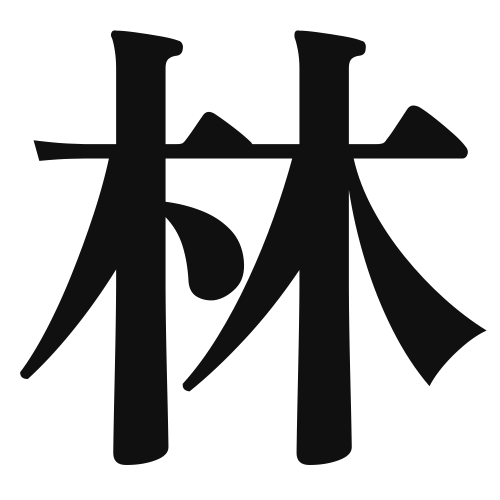1. Overview of Meaning
The kanji “林” (pronounced “hayashi” in Japanese) means “forest” or “woods.” It represents a collection of trees and is often associated with nature and tranquility.
2. Formation and Radical
The kanji “林” is a compound character, formed by combining two instances of the kanji “木” (meaning “tree”). This structure indicates a larger number of trees, thus conveying the idea of a forest. The radical of “林” is “木,” which is commonly associated with trees and wood-related concepts.
3. Examples of Usage
Common words and phrases that include “林” are:
- 森林 (しんりん, shinrin) – “forest”
- 林業 (りんぎょう, ringyō) – “forestry”
Example sentences in daily conversation:
- 「私たちは林の中を散歩しました。」(We walked through the forest.)
- 「この地域には美しい森林があります。」(This area has beautiful forests.)
4. Synonyms and Antonyms
Similar kanji with related meanings include:
- 森 (もり, mori) – “forest,” which typically refers to a larger and denser area of trees compared to “林.”
Antonyms include:
- 砂漠 (さばく, sabaku) – “desert,” which represents an area devoid of trees and vegetation.
5. Cultural and Historical Background
The kanji “林” is deeply connected to Japanese culture, where forests are often seen as sacred spaces and are integral to traditional beliefs and practices. In Japanese folklore, forests are sometimes inhabited by spirits, known as “yokai.”
Proverbs and idioms related to “林” include:
- 「林の中の小鳥」(A small bird in the forest) – symbolizing freedom and the beauty of nature.
